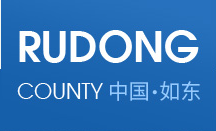BASF Rudong plant achieves carbon neutrality, leads sustainable development

Products made at BASF's Rudong plant are showcased. [Photo/WeChat account: rudongfb]
BASF Crop Protection Jiangsu has made significant strides in green transformation, balancing efforts to reduce its carbon footprint with enhanced product innovation to drive sustainable growth.
The plant in Rudong county, Nantong, the company's first wholly-owned production facility in the Asia-Pacific region, produces crop protection products which are exported to over 160 countries. In September, BASF Agricultural Solutions announced that the Rudong plant became the first BASF production site globally to achieve zero carbon emissions.
The milestone aligns with BASF's stringent environmental goals, which include reducing greenhouse gas emissions by 25 percent by 2030 and achieving net-zero emissions by 2050.
Historically, steam heating was the primary source of carbon emissions at the Rudong plant. Last year, the company initiated a plan to phase out such systems. By transitioning to renewable energy for power and heating, the plant successfully eliminated carbon emissions in September. This technological upgrade is expected to save 3,000 metric tons of steam annually and reduce CO2 emissions by approximately 1,100 tons, equivalent to planting 250,000 trees each year.
BASF prioritizes green, healthy, high-quality crop yields in its product development. To meet growing demand for sustainable, high-performance crop protection solutions, the company integrates sustainability standards into its R&D. BASF invests 10 percent of its annual sales revenue in research, amounting to 900 million euros in 2023.
The Rudong plant produces patented products which offer robust disease control, quality enhancement, and yield improvement capabilities, addressing mid-to-late crop management challenges. Over the past decade, the plant has generated nearly 10 billion yuan ($1.38 billion) in taxable sales, showcasing its economic and environmental contributions.


